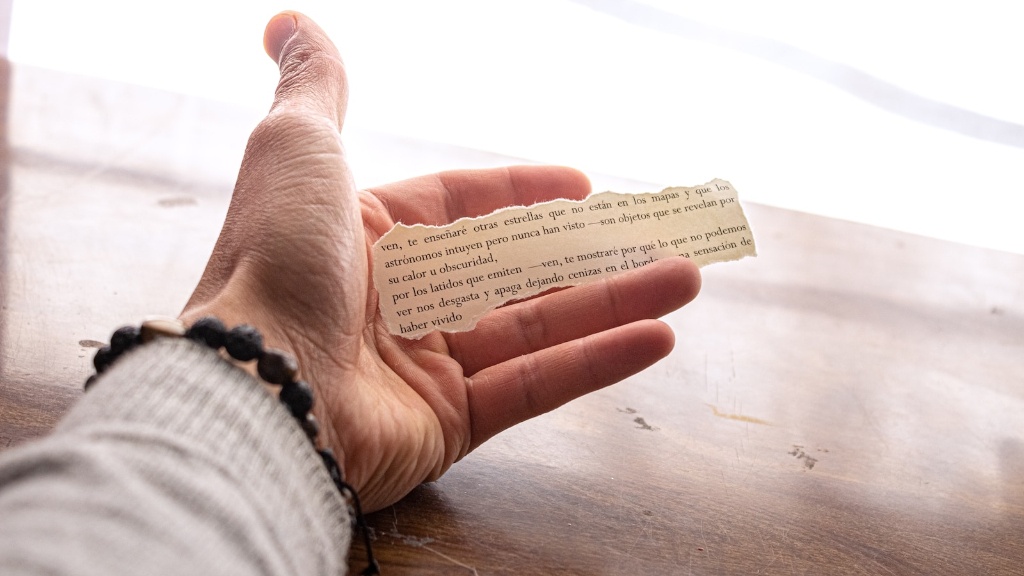When it comes to poetry, physicians and patients have often found inspiration from each other. Many doctors have written poems about their time in medical school, as well as about their experiences with their patients. Likewise, patients have written poems expressing their gratitude and appreciation for their doctors and the care they provide. Poetry is a unique way to honor both the doctor’s and the patient’s contributions to the healing process.
Poetry has a long-standing history of being used in medicine. As early as the 17th century, ancient physicians included poetry in their writings and teachings. Further, during the height of the Renaissance in Europe, many doctors wrote verses in Latin to express their findings and observations. There were even accounts of physicians using passages from the Bible to comfort their patients.
In present-day medicine there has been an increasing focus on patient-centred care. This has brought about a renewed appreciation for the role of the patient in the healing process and for the importance of patient well-being and representation. To this end, many physicians are turning to poetry to engage with patients and to facilitate meaningful conversations about their goals and objectives. Through poetry, physicians are able to offer a space for meaningful conversations, explore potential treatments and provide an opportunity for both parties to partake in a creative form of art.
Over the past decade, there has been a growing interest in the use of poetry to facilitate therapeutic conversations at the doctor-patient level. A study conducted by researchers in 2012 highlighted the benefits of introducing poetry into the medical space. For instance, it suggested that poetry can be used to foster autobiographical reflections, express and explore emotions, provide motivation and support, and create a connection between a patient and their care provider.
From a patient’s perspective, poetry can offer comfort and reassurance, initiate dialogue, and give them the opportunity to explore their feelings and gain insight into their health and wellbeing. For example, a patient may find solace in exploring the symbolism of a poem about courage, determination, or hope. Additionally, poetry can be used to help patients better understand their diagnosis and the journey that lies ahead. It can also be used to assist in communication between a doctor and a patient, providing a more holistic, engaging and meaningful way of sharing personal stories.
Power of Words
Those who turn to poetry as a means of expressing their experiences of illness, or to comfort their caregivers often find solace in literature. Whether it is a patient writing a poem or a physician reading a piece of poetry found in a book, verse that resonates can have a profound effect on the healing process. Poetry can often open up pathways for individuals to express their feelings through creative and meaningful language, to reflect on difficult emotions, or to simply offer another perspective.
Poetry can be a powerful tool in medical settings. From a health professional’s point of view, poetry can offer new ways of understanding patients and addressing their needs. Similarly, from the patient’s perspective, poetry can help to affirm feelings of identity and belonging, to foster contemplation and reflection, and to focus on strategies for managing illness and treatment.
The healing power of words is often overlooked in western approaches to medicine, however, integrating literature and poetry in healthcare has the potential to bring patients and their carers to deeper levels of understanding and shared meaning around the experience of illness.
Promoting Emotional Intelligence
In order to facilitate a healing environment, it is essential for healthcare providers to recognize the emotional aspects of their patients and to treat them with kindness and empathy. By using poetry, a physician can create an inviting and safe space to foster emotional intelligence. Through this emotional intelligence, a physician can understand their patient’s feelings and motivations more deeply, which can result in better patient outcomes.
Introducing poetry into medical practices can help break down barriers between patients and physicians, build stronger patient-doctor relationships, and promote emotional healing. Additionally, by reading and writing poetry, both doctors and patients can become more self-aware and gain a deeper understanding of their own feelings and emotions.
Ultimately, poetry is an effective way to bridge the gap between physician and patient. It is used to help both parties connect more deeply with each other and provide a unique opportunity to explore the experience of illness in a creative and healing way.
Inspiring a Creative Outlet
Poetry can help to inspire a creative outlet for both doctors and patients. As healthcare providers, physicians can use literature to connect with their patients and to offer a gesture of comfort and support. Further, reading and writing poetry has been known to help practitioners expand their own creative and emotional horizons. This could ultimately help them to better connect with their patients on a deeper level.
Similarly, patients can use writing as an outlet to express their emotions and to find comfort in artistic forms. When interacting with poetry, individuals can cultivate meaningful autobiographical reflections, explore their personal experiences and express inner feelings. This can provide a comforting and reflective environment in which to process emotions and to connect with their own inner strength.
At its core, poetry is an effective tool for building relationships, connecting with individuals, and providing a conduit for personal reflection. Poetry is a unique way to honour both the doctor’s and the patient’s contributions to the healing process. It is a tool that has been used for centuries, in order to bring comfort and understanding to both practitioners and patients alike.
Exploring Reflective Writing
Another form of creative expression that has played an important role in the doctor-patient relationship is reflective writing. This involves the patient writing about their personal experiences with illness, thoughts and feelings. It can be a highly beneficial form of writing, as it fosters self-reflection and can provide powerful insights into one’s physical and mental wellbeing.
Reflective writing has been used for centuries, and is a powerful tool for those looking to process and make sense of a particular situation. It is also a great way to express gratitude to a physician. By writing a letter or poem, patients can thank their physician and offer appreciation for their care.
By engaging in reflective writing and poetry, physicians and patients can gain insight, better understand each other, and provide a pathway to emotional healing. These are powerful tools that can be utilized to foster meaningful dialogue, to express emotions, and to create a welcoming and reflective space where both parties can connect on a deeper level.
Developing Empathy
Empathy is an essential part of being a great doctor. It is important for physicians to be able to connect with their patients on an emotional level and to understand their experiences with illness. One way that doctors can develop empathy with their patients is by exploring literary works and engaging with poetry. By reading and discussing a poem together, physicians can foster deeper connections with their patients and create a healing environment.
Empathy is also a powerful tool for treating patients, as it allows doctors to be more understanding and provide more compassionate, patient-centred care. Doctors who can empathize with their patients can create a more positive health care experience, which is important for patients who need support during their recovery.
The use of poetry and reflective writing can also help to develop empathy between health practitioners and their patients. By reading works of literature together and discussing them, both parties can gain insight into each other’s unique perspectives and develop a deeper understanding of each other.
Converting Pains into Hope and Strength
In challenging times, poetry can be a source of hope and strength. When faced with a difficult diagnosis, patients often seek comfort and solace in literature. By reading and writing poetry, individuals can find a creative outlet for expressing their feelings and reflect upon the experience of illness in a more meaningful way.
Poetry also has the ability to remind patients of their sense of self and to bring out their inner strength. These feelings of strength and hope can empower patients to make decisions about their health and to look for the silver lining in their experience of illness. It can also help to provide motivation and reassurance to individuals who may be struggling to cope with the challenges posed by an illness.
Ultimately, poetry and reflective writing can be highly beneficial for both physicians and patients. It can provide a source of comfort and strength, foster meaningful dialogue and connection, and highlight the importance of patient-centred care. This is an effective way to honour the patient’s experience and to bring about healing and understanding.





